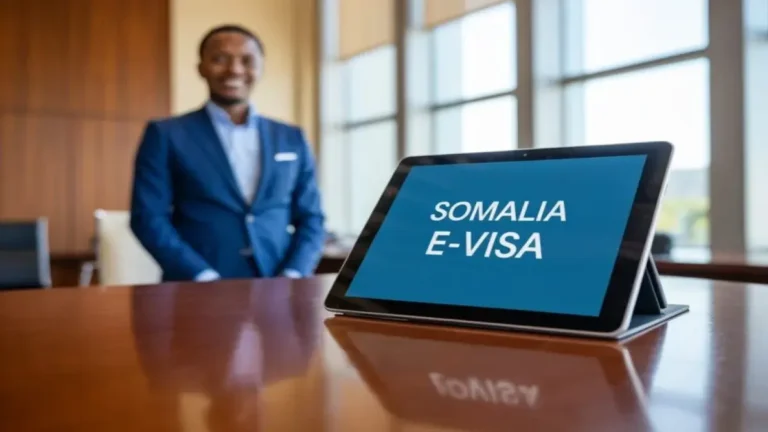Mogadishu, Somalia – A new e-visa policy for Somali-born travelers using foreign passports has triggered backlash from diaspora members and local political analysts.
Starting Sept. 1, all travelers, including Somali-born individuals with foreign passports, must apply for an e-visa before entering Somalia, officials confirmed Saturday.
Somali passport holders are exempt, but the change affects millions in the diaspora, many of whom travel using Western-issued travel documents.
“This is not a smart policy,” said former minister Ali H. Warsame on X. “Diaspora Somalis contribute billions annually. They deserve better.”
Critics argue the new requirement contradicts Somalia’s stated goals of encouraging diaspora investment, tourism, and global cultural engagement with Somali heritage.
They point out Somali-born travelers can still obtain visas on arrival in countries like Kenya, Morocco, and Türkiye without prior application.
“We’re now making it harder for our own people to visit,” said Abdi Barud, a prominent diaspora voice. “This is a misstep.”
Others defended the policy, arguing border security and equal application of immigration rules are essential for any functioning sovereign state.
“Immigration law is based on nationality, not ancestry,” said analyst Asad Mohamed. “A Somali-American is still an American passport holder.”
Mohamed proposed a “Diaspora Card” to recognize Somali origin while maintaining a uniform visa system based strictly on nationality.
Uncertainty remains about how the policy will be enforced at major entry points like Mogadishu’s Aden Adde and Hargeisa International Airport.
“There’s concern some airlines may exploit this policy,” Warsame said, warning of overcharging or denial of boarding for diaspora travelers.
Some online users responded bluntly to the criticism. “Get a Somali passport,” wrote Mohamed Socdaal. “Identity comes with responsibility.”
The federal government has not issued full guidelines, though it says digitized visas are crucial to modernizing border systems and national security.
Supporters also cite sovereignty concerns, noting that many top Somali officials and political actors hold foreign citizenship, including in Somaliland.
“Some foreign governments could influence Somali politics through dual nationals,” noted social media commentator Tuomas Santakallio in a recent post.
Analysts caution that restricting diaspora travel risks weakening ties with communities Somalia relies on for remittances, business, and global advocacy.
“The policy may be legal, but is it wise?” asked Daud Osman, a policy researcher. “That’s the real debate facing the government.”
Somalia’s Immigration and Citizenship Agency (ICA) has not responded yet to widespread backlash and heated social media discussions about the new e-visa policy.

